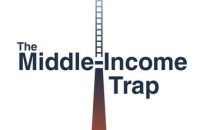When the law first passed, its backers from both major political parties said it was an important measure to prevent criminals from using the United States as a financial haven to park their illicitly obtained assets without interference from law enforcement. The Treasury Department did not immediately respond to a request for comment.The law, the […]


When the law first passed, its backers from both major political parties said it was an important measure to prevent criminals from using the United States as a financial haven to park their illicitly obtained assets without interference from law enforcement.
The Treasury Department did not immediately respond to a request for comment.The law, the Corporate Transparency Act, would force corporate entities to report information about their ownership and control starting Jan. 1. An appeals court has paused an injunction that would have stopped the enforcement of the law, meaning its reporting requirements will go into effect unless there’s another intervention within the next week.A group of American businesses faced a setback on Monday in their legal fight against a new federal anti-money-laundering law.“The law is the single most important piece of anti-money-laundering legislation that the U.S. has passed in decades,” said Casey Michel, who wrote the book “American Kleptocracy” and who works on kleptocracy issues at the Human Rights Foundation. “Oligarchs, narco-traffickers, human traffickers and other bad actors have been taking full advantage of anonymous shell companies here in the United States.”
The stay, by the U.S. Court of Appeals for the Fifth Circuit, means millions of businesses will likely have to disclose the identities of their “beneficial owners,” the people who ultimately own 25 percent or more of the company, or exercise significant control over it.As of 2011, according to a report by the World Bank, the United States was “by far the worst performer of the countries reviewed” when it came to conducting due diligence on newly formed corporate entities.Millions of companies may have to report information about their owners to the Treasury Department by Jan. 1 under an appeals court ruling.In a separate lawsuit challenging the same law, Judge Liles C. Burke of the Northern District of Alabama called the law “smart” but found that Congress had gone beyond its constitutional powers in its enactment.The recent court order, which pauses Judge Mazzant’s injunction while the government prepares its appeal, could still be reversed.
Litigation over the law is now working its way through four of the federal appeals courts. The law’s opponents gained a victory this month, when Judge Amos L. Mazzant III of the Eastern District of Texas issued a nationwide injunction that banned enforcement of the Corporate Transparency Act.But lobbyists for banks and business owners were dismayed by the law’s reporting requirements. They have been fighting its enforcement, arguing that the law imposes an onerous burden on small businesses and violates the Constitution.Judge Mazzant found that the law was an unconstitutional and “quasi-Orwellian” intrusion into the domain of the states, many of which had intended for anonymity to be “a feature of corporate formation.”














